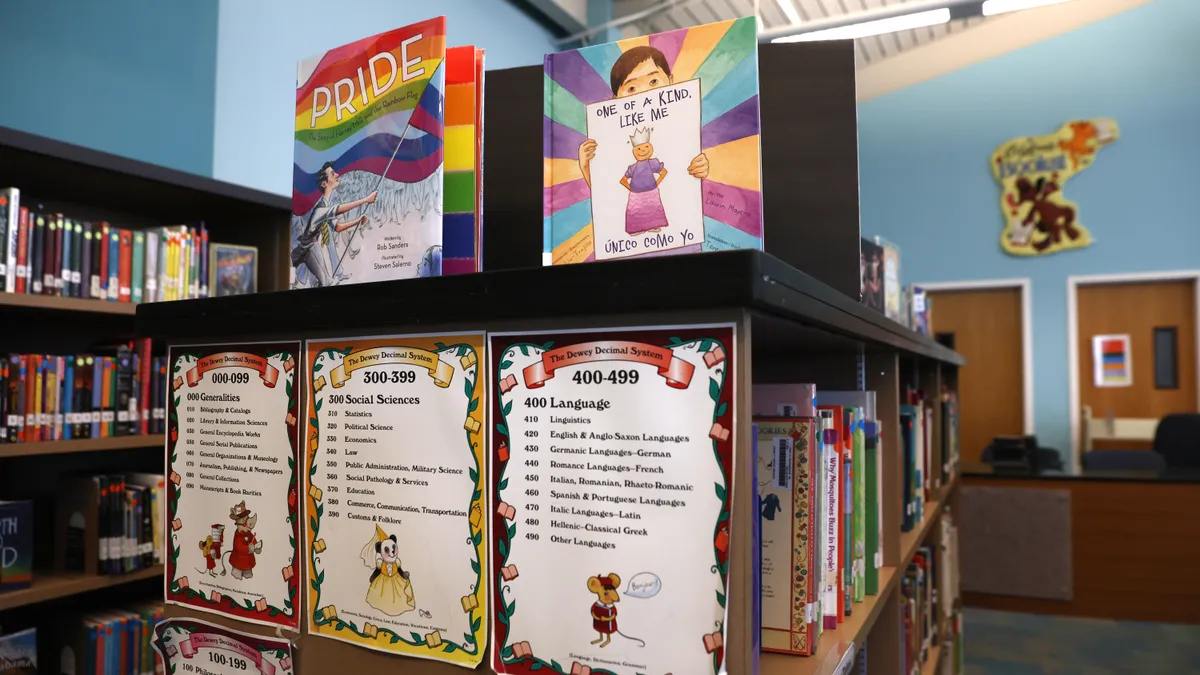Dive Brief:
-
Republican-leaning states, many with curriculum restrictions already in place, are increasingly considering penalizing libraries and librarians through various policy changes. Some have proposed removing protections — typically afforded to librarians — from obscenity laws, which are meant to regulate or censor "obscene materials," while others are proposing specific criminal penalties or fines.
-
Idaho Gov. Brad Little signed a law this week that would make school and public libraries subject to civil lawsuits from parents or others if materials are considered "harmful to minors." Louisiana, West Virginia, Indiana, Alabama, Tennessee, Arkansas, Montana, North Dakota, Texas, Missouri and Georgia are among other states that have considered or advanced legislation that would impose criminal penalties or fines.
-
The American Library Association warns that librarians are being driven out of the profession by these threats and controversies.
Dive Insight:
The curriculum censorship movement that began with "divisive concept" laws and anti-LGTBQ+ measures restricting topics in the classroom has since evolved to include other measures, such as prohibitions on diversity trainings and, more recently, penalties against school librarians.
While legislators have introduced measures against school librarians or libraries in at least a dozen states, they vary in their scope and penalties.
Louisiana's House Bill 777 introduced last month would prohibit any public employee from spending public funds with the ALA or risk up to two years in prison and a fine of up to $1,000. Another bill introduced in February would subject librarians to penalties under the state’s obscenity law, which could include two to five years in prison and up to $10,000 in fines if materials deemed to be obscene involve unmarried minors.
By contrast, a proposal in West Virginia would lift obscenity law exemptions provided to schools and public libraries and subject librarians to felony charges, fines of up to $25,000, and up to five years in prison.
"School librarians are fearful about acquiring any book that might touch on sex or sexuality, including works that address gender identity, sexual orientation, or address abuse or sex ed - including award-winning literary works and nonfiction," said Shawnda Hines, a spokesperson for ALA. "The result is that students cannot find books that reflect their experiences or identity in the school library, and all students are denied access to books that provide understanding and factual information."
Hines suggested that school leaders should:
- Acknowledge the expertise of school librarians.
- Support their professional development.
- Support their work to create book collections that serve diverse students.
- Adhere to policies and procedures to review books.
- Keep in mind that many claims made about books are false or inaccurate.
- Ensure that school board members are equipped with information needed to address curriculum censorship demands.
- Listen to their students.







 Dive Awards
Dive Awards





